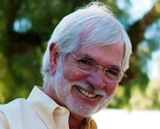Reversing the Supreme Court's gift of constitutional rights to corporations in Citizens United will not cure the political ills weakening the sinews of democracy that bind the United States. The nation was infected at birth and it will continue to be diseased until its government is transformed into one that is responsive to the needs and ambitions of ordinary people, irrespective of wealth or influence.
Although Citizens United unleashed the overwhelming power of the wealthy elite, corporations, and other special interest groups to purchase the major benefits of government while avoiding the burden of taxation, the danger presented by the power of money has been a risk to democracy throughout American history.
Thomas Jefferson hoped that "we shall crush in its birth the aristocracy of our monied corporations which dare already to challenge our government to a trial by strength, . . ." Almost two hundred years later, Franklin Roosevelt said, "We know now that Government by organized money is just as dangerous as Government by organized mob."
A number of organizations have attracted widespread bipartisan support in their efforts to overturn Citizens United. Even if they succeed in persuading Congress to enact an amendment depriving corporations of constitutional rights and if they convince three fourths of the states to ratify the amendment, the problems that existed the day before the decision was announced will remain and will continue to be as threatening as ever.
Legalized bribery in the form of campaign contributions will still influence the actions of elected officials; candidates will still avoid taking positions on critical issues and will ignore the concerns of voters; political parties will still enact policy "platforms" designed to attract voters and will ignore their promises once their candidates are elected, and voters will continue to be uninformed and turned off by elective politics.
If they are to ever achieve true representative democracy and the freedom and opportunity inherent in its promise, the People of the United States must transform their government, rather than to reform or restore it back to something which will not serve or protect their best interests.
Public Policy
The essence of politics is the formulation of policy, and the manner and means by which public policy is made and effectuated by laws and regulations defines the very nature of government.
The effectiveness of a democracy can be measured by the degree that its voters have an influence in the development and articulation of government policy, either directly or through their elected representatives. Conversely, curtailment of that power results in an oligarchy or plutocracy, rather than a democracy.
The Existing Public Policy System.Presently, political parties and candidates identify their concept of the issues confronting the offices sought, and they present their policies regarding the various issues. Citizens then cast their votes for the candidates they hope are best prepared to solve the problems they consider to be the most serious.
The current process presents a number of problems. Left to their own devices, politicians ignore the most critical issues and concentrate their resources and rhetoric on personalities and negative campaigning designed to lower the estimation of their opponents in the eyes of the voters. In addition, candidates studiously avoid taking any position on the real issues they will face, believing they will lose rather than gain votes by taking a stand.
Specifically, during presidential elections, the political parties construct "platforms" defining their proposed policies on the issues. These artfully drawn platforms are designed to appeal to the maximum number of voters, while retaining a sufficient degree of ambiguity to avoid all accountability in the future.
If the presidential platform was a blueprint for the construction of a residence, the house would be unattractive, unsafe, and uninhabitable. Even so, American voters continue to attend the open houses held by slick political salesmen, and more often than not they are forced to buy the lesser of two evils, with the ever diminishing hope that their purchase will actually live up to its promises.
The Politics of Wealth.
The development of meaningful public policy also suffers because the two main political parties have become virtually indistinguishable. They primarily rely on the same corporations, financial institutions and wealthy elite for major campaign financing, and consequently, irrespective of their "platforms," they both remain beholden to the same narrow constituency and its special interests, rather than the health and welfare of those who cast the ballots.
David and Charles Koch hosted a billionaire summit conference in the last week of January at a golf resort in Southern California to plot strategy and raise money for the 2012 elections. This was not the first time the wealthy elite has united to make and control the U.S. political agenda, nor will it be the last.
Next Page 1 | 2 | 3 | 4 | 5 | 6 | 7
(Note: You can view every article as one long page if you sign up as an Advocate Member, or higher).





